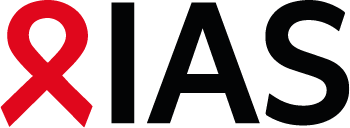Share Abstract
Health system reliance and disruption: lessons from Mozambique's experience with the U.S. aid freeze
Abstract Content:
BACKGROUND: In January 2025, an executive order was issued suspending almost all the U.S. foreign aid programmes for 90 days. We aimed to describe the context, the immediate response and the short-term impact of this order on Mozambique's HIV service provision.
DESCRIPTION: Mozambique, the country with the third highest population of people living with HIV in the world, relies heavily on the U.S. fund which, in 2022, covered 93% of the country's expenses for HIV service delivery, mainly through PEPFAR. Due to this reliance, the country's Ministry of Health has entrusted critical logistic and operational activities for the continuity of HIV service delivery to implementing partners funded by PEPFAR. Therefore, the 'stop-work order', with no prior notice and unclear guidance for PEPFAR programs and personnel, made it difficult for the Ministry of Health to continue managing the required logistic and operational activities for the continuity of service delivery. This disrupted the service provision chain, including the inability to deliver prevention and treatment services and commodities to its clients.
LESSONS LEARNED: National level programmatic data showed marked declines in key HIV service indicators in February 2025 for male and female clients from all age groups, compared to the same month of the previous year. In general, there was a decline in peer-led outreach interventions enrolees from 13,834 in February 2024 to 9,910 in February 2025 (40% reduction), in antiretroviral therapy initiations from 25,379 to 19,002 (34%) and re-initiations from 15,259 to 10,033 (52%), and in tuberculosis screening coverage from 555,251 to 478,247 (16%). Among those on treatment, there was a decrease of 37,010 (38%) of viral load tests performed, 27,656 (37%) of test results received, and 22,043 (33%) of viral suppression. These viral load cascade indicators were worse in children (<15years), 44%, 71% and 43%, respectively, showing a disproportionate impact on paediatric population.
CONCLUSIONS: The findings highlighted the critical role of U.S. funding in sustaining the HIV prevention and treatment services in Mozambique and exposed the country''s system fragility. This episode underscores the urgency of building health systems that are both financially and operationally sustainable in the face of unpredictable donor landscapes.
DESCRIPTION: Mozambique, the country with the third highest population of people living with HIV in the world, relies heavily on the U.S. fund which, in 2022, covered 93% of the country's expenses for HIV service delivery, mainly through PEPFAR. Due to this reliance, the country's Ministry of Health has entrusted critical logistic and operational activities for the continuity of HIV service delivery to implementing partners funded by PEPFAR. Therefore, the 'stop-work order', with no prior notice and unclear guidance for PEPFAR programs and personnel, made it difficult for the Ministry of Health to continue managing the required logistic and operational activities for the continuity of service delivery. This disrupted the service provision chain, including the inability to deliver prevention and treatment services and commodities to its clients.
LESSONS LEARNED: National level programmatic data showed marked declines in key HIV service indicators in February 2025 for male and female clients from all age groups, compared to the same month of the previous year. In general, there was a decline in peer-led outreach interventions enrolees from 13,834 in February 2024 to 9,910 in February 2025 (40% reduction), in antiretroviral therapy initiations from 25,379 to 19,002 (34%) and re-initiations from 15,259 to 10,033 (52%), and in tuberculosis screening coverage from 555,251 to 478,247 (16%). Among those on treatment, there was a decrease of 37,010 (38%) of viral load tests performed, 27,656 (37%) of test results received, and 22,043 (33%) of viral suppression. These viral load cascade indicators were worse in children (<15years), 44%, 71% and 43%, respectively, showing a disproportionate impact on paediatric population.
CONCLUSIONS: The findings highlighted the critical role of U.S. funding in sustaining the HIV prevention and treatment services in Mozambique and exposed the country''s system fragility. This episode underscores the urgency of building health systems that are both financially and operationally sustainable in the face of unpredictable donor landscapes.
